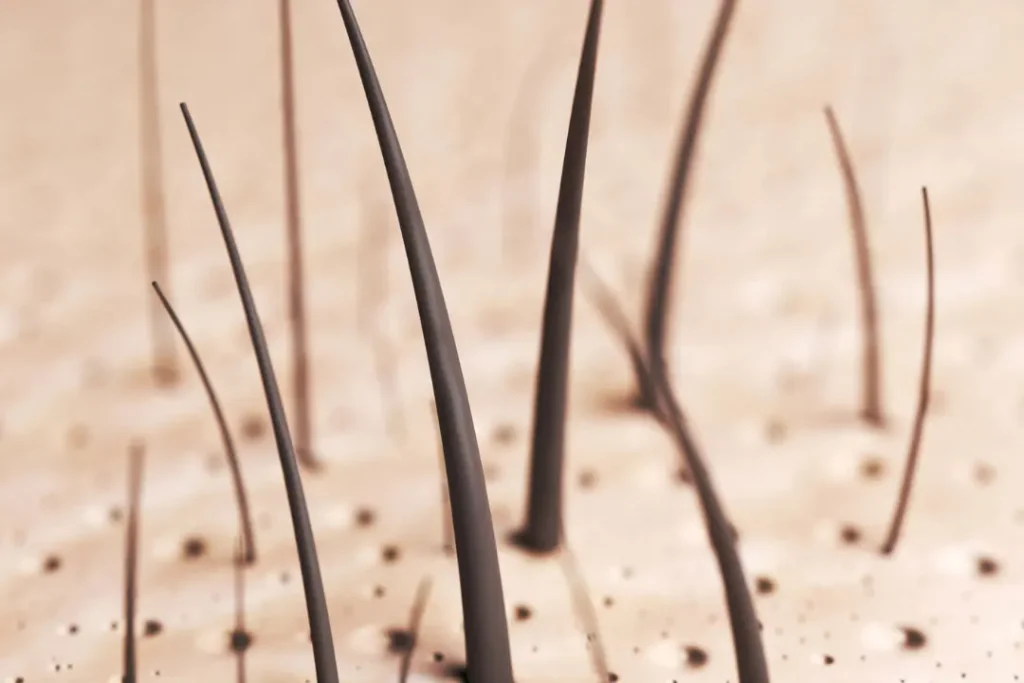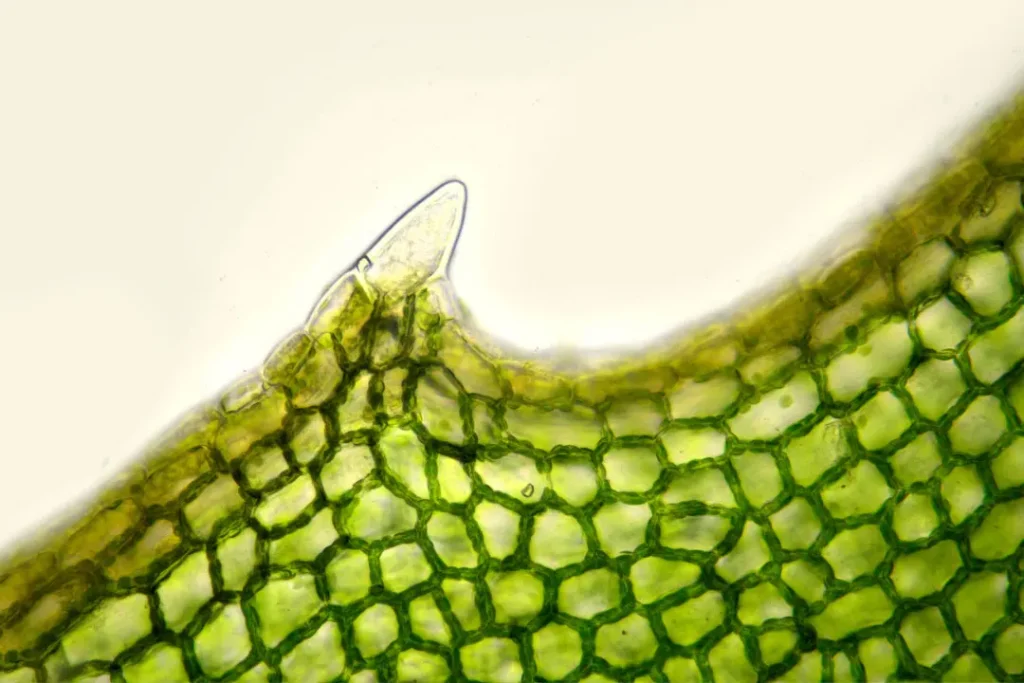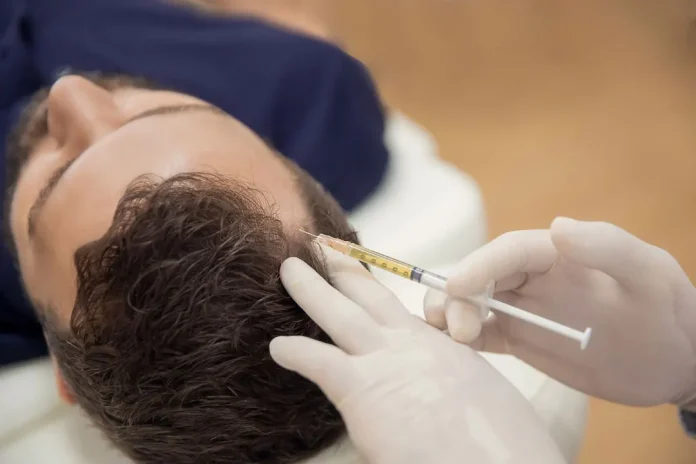Stem Cells for Hair Growth: Cutting Edge Science Meets Hair Restoration
Hair loss is a widespread and distressing issue that millions of people experience worldwide. Hair loss can negatively affect a person’s self-esteem and general well-being, regardless of whether aging, genetics, hormonal changes, or other causes bring it on. Many people are searching for an efficient and long-lasting remedy to restore their once-lustrous locks as the hair strands gradually weaken and recede. Numerous approaches, including drugs, hair transplants, and topical treatments, have been used to address this problem over time. Despite the fact that these conventional methods have provided some comfort for some people, they frequently have drawbacks and may not be appropriate for everyone.
Recent scientific advances have reenergized the subject of hair restoration and revealed a fascinating and promising strategy for reversing hair loss: stem cells for hair development. Thanks to this cutting-edge study, those who have yearned for a more natural and lasting solution now have hope, which has paved the way for new avenues. Stem cells have an exceptional capacity for regeneration. Stem cells have proved to have enormous potential to promote hair development and rejuvenate hair follicles. Researchers are looking into using stem cells in a variety of therapeutic contexts, including hair regrowth, as the field of regenerative medicine develops.
You May Also Like:
Testosterone and Baldness… Is There a Link?
Vitamin Deficiency and Hair Loss: Our Deeper Look at the Root Causes
Stem Cells for Hair Growth: Cutting Edge Science Meets Hair Restoration is an original (OptimalHealthNews) article.
Understanding stem cells
Before diving into the realm of hair growth and stem cells, let us first comprehend the remarkable nature of stem cells. Stem cells are a unique class of cells with the extraordinary ability to differentiate into specialized cells that perform specific functions in the body. Depending on the body’s needs, stem cells can either self-renew or give rise to daughter cells that can differentiate into various cell types. These remarkable cells are found not only in plants but also in various tissues within the human body.
The versatility of stem cells makes them a vital component in the body’s natural healing processes. When tissues are damaged or injured, stem cells migrate to the affected area and begin the regenerative process by dividing into the necessary cell types. This regenerative potential is what makes stem cells so intriguing for various fields of medicine, including hair restoration.
In recent years, scientific research has been directed towards harnessing the power of stem cells for regenerative therapies, offering hope for a myriad of conditions. The potential of stem cells to restore and rejuvenate tissues has caught the attention of researchers, prompting investigations into the various sources of stem cells and their unique properties. While embryonic stem cells have long been at the forefront of regenerative medicine, the ethical concerns surrounding their use have led scientists to explore alternative sources. Adult stem cells, also known as somatic or multipotent stem cells, are found in various tissues of the body, including bone marrow, adipose tissue, and even in the skin.
Interestingly, researchers have discovered that some plants also possess stem cells with regenerative capabilities similar to those found in human tissues. These plant stem cells are located in specific regions of the plant, such as the meristems, where active growth and differentiation occur. Throughout the plant’s life, these stem cells continuously generate new tissues, enabling the plant to grow, repair damage, and respond to environmental stresses. This revelation has paved the way for exploring the potential of plant stem cells in various applications, including hair growth.
With an increasing focus on natural and sustainable solutions in the field of medicine, plant stem cells have garnered attention for their unique properties and potential therapeutic benefits. Harnessing the regenerative power of plant stem cells for hair growth has opened up a new frontier in the quest for effective hair restoration treatments that address hair loss and promote overall scalp health. As scientific understanding continues to deepen, the utilization of plant stem cells in hair restoration may offer a promising and ethical alternative to traditional methods. Embracing this innovative approach brings us one step closer to unlocking the secret of hair growth and redefining the landscape of hair restoration.

The potential of plant stem cells
Plant stem cells have distinct qualities that support their capacity for regeneration. They can be found in plant meristems, which are areas of ongoing development and differentiation. These plant stem cells can generate new tissues throughout the plant’s lifespan, aiding in growth, repair, and plant defense against environmental stresses.
The ability of some plant stem cells to promote human health, including hair development, has recently been found by scientists. Proteins, phytohormones, and other vital growth factors in plant stem cells help stimulate hair follicles, enhance scalp conditions, and advance overall hair health. Researchers are examining these characteristics to learn more about how stem cells, whether derived from plants or people, can improve general health.

The science of hair growth and stem cells
During the hair’s growth cycle, hair follicles strictly control the process of growth, rest, and shedding. As these hair follicles become less active with age or in response to stressors such as heredity, hormone imbalance, and environment, the hair can become thin and even begin to fall out.
By stimulating the growth of new hair cells and reactivating dormant hair follicles, stem cells can be crucial in the process of hair regeneration. Plant stem cells stimulate the formation of hair follicles when administered topically or injected into the scalp. This results in better texture and thickness for the entire head of hair.
More Hair Naturally 9 – a breakthrough in hair restoration
One remarkable product that harnesses the power of plant stem cells for hair growth is the More Hair Naturally 9 offered by More Hair Naturally. More Hair Naturally is renowned as one of the market’s best and most reputable sources of high-quality plant stem cells. Their More Hair Naturally 9 combines three potent plant stem cell extracts that have been scientifically proven to boost hair growth and scalp health.
This innovative spray is formulated with precision to deliver essential nutrients and growth factors directly to the hair follicles, nourishing them from within. The More Hair Naturally 9 not only promotes hair growth but also helps strengthen hair strands, reduce breakage, and improve the overall vitality of the hair.

More Hair Naturally – pioneering hair restoration solutions
In addition to the More Hair Naturally 9, More Hair Naturally provides a wide selection of hair restoration solutions that make use of the most recent advances in science. Their products, which range from serums to conditioners, are made to work well together and offer a holistic approach to hair restoration.
They stand out from other goods on the market since they are dedicated to using the best plant stem cells. With a focus on safe and long-lasting hair restoration choices, More Hair Naturally has established a reputation as a reliable resource.
Embracing the future:
Stem cells redefining hair restoration
Stem cells for hair growth are a cutting-edge and fascinating new frontier in the field of hair restoration. Stem cells have the potential to stimulate hair growth and revitalize the scalp, providing a safe, long-lasting, and potent treatment for hair loss. By staying informed about the most recent scientific advancements and cutting-edge products like the More Hair Naturally 9, individuals seeking hair restoration treatments can make educated decisions and set out on a path to regaining their confidence and self-esteem. Embracing the future of stem cells for hair growth may well lead to a new era of effective and sustainable hair restoration solutions.
With the potential that plant stem cells hold for hair regrowth, there is much excitement and anticipation for further research and developments in this field. As science continues to unlock the mysteries of stem cells and their regenerative capabilities, we can envision a future where hair loss may no longer be an irreversible fate. The convergence of cutting-edge science and the power of nature’s resources brings hope to those who seek a confident and revitalized sense of self, one strand of hair at a time. Let us embrace this future, where stem cells redefine hair restoration, and individuals can confidently face each day with a head full of healthy, vibrant hair.

For further reading:
National Institutes of Health, Nahyun Choi, et al.: Minoxidil Promotes Hair Growth through Stimulation of Growth Factor Release from Adipose-Derived Stem Cells
National Institutes of Health, Chih-Lung Chen, et al.: Functional complexity of hair follicle stem cell niche and therapeutic targeting of niche dysfunction for hair regeneration
Experimental Cell Research, Hui Cheng, et al.: Enhancement of hair growth through stimulation of hair follicle stem cells by prostaglandin E2 collagen matrix
Journal of Dermatological Science, CH Won, et al.: Hair growth promoting effects of adipose tissue-derived stem cells.
The Federation of American Societies for Experimental Biology, Deborah Philip, et al.: Thymosin β4 increases hair growth by activation of hair follicle stem cells.
Important Note: The information contained in this article is for general informational purposes only and should not be construed as health or medical advice, nor is it intended to diagnose, prevent, treat, or cure any disease or health condition. Before embarking on any diet, fitness regimen, or program of nutritional supplementation, it is advisable to consult your healthcare professional to determine its safety and probable efficacy in terms of your individual state of health.
Regarding Nutritional Supplements or Other Non-Prescription Health Products: If any nutritional supplements or other non-prescription health products are mentioned in the foregoing article, any claims or statements made about them have not been evaluated by the U.S. Food and Drug Administration, and such nutritional supplements or other health products are not intended to diagnose, treat, cure, or prevent any disease.
